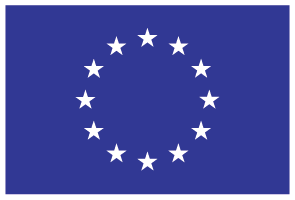OTGV #59 - GM Food
Broadcast Date: 07/06/04
The European Union has lifted its controversial 1998 ban on Genetically-Modified or GM food.
Environmentalists called GM food "Frankenstein food" as these are plants that have been tweaked genetically to be more parasite and climate resistant or provide either greater yields or better taste.
The biotech companies and most governments say GM food is safe and it'll feed the world's hunger.
But consumers have reacted suspiciously saying that the long-term health risks are yet unknown.
Hi, Welcome to On the Grapevine with me, Chong Ching Liang.
As far as GM-food is concerned, a recent workshop for regional stakeholders is significant.
CEO of the Agrifood and Veterinary Authority of Singapore Dr Ngiam Tong Tau.
"The First Asean workshop for testing for genetically modified food is an important step for Asean members to have a deeper understanding of GM-food. It is also necessary for us to have methods to detect GM food coming into this region. That's why that we are very glad that at this workshop there are experts from different countries here to inform us in the advances in testing for genetically modified food."
As the world heads into an era dominated by biotechnology, the issue of quality control and food safety becomes crucial, hence GM testing is now considered indispensable in many regions.
In regions like Europe and Japan where there're great consumer suspicions of GM food, a rigorous test is written into the law.
Dr Guy van dan Eede of the European Commission's Institute of Health and Consumer Protection.
"For us within the European community, testing is essential, there is a new law into force on the 19th of April, we need to have testing procedures for every GMO that's being place on the European market. My organisation, the joint research centre of European commission actually checks the validity of such a method."
Proper testing and policing will ensure that only GM-food that's been certified safe by the World Health Organisation or individual countries will reach our neighbourhood supermarkets.
Karen Chan, a local consumer and expectant mother, says she wouldn't mind eating GM-food if stringent checks exist.
"I am trusting the authorities are giving us sufficient knowledge or at least are disseminating sufficient accurate information to consumers like us. There is a certain level of trust that we have to have in terms of it is a safe product to consume. Ultimately if it is safe, I guess I am not against taking it."
But in countries like Europe, Japan, and other developed western economies, food retailers are require to label GM food products clearly.
Dr van dan Eede thinks this will eventually become a global movement and not just a European idiosyncrasy.
"Labelling requirement as they are applied in the European Union is also taken over by a number of international like Codex Alimentarius. I also hear that a number of non-EU countries, even the United States, Japan. It is certainly the case in Australia and New Zealand so it is not that the EU is an island in terms of labelling. There may be a tendency towards world-wide labelling."
GM-food in the form of soya, corn and canola oil has been in Singapore the last four to five years.
But many Singaporeans don't know about them being GM food as they have never been labelled as such.
Dr Ngiam of the A-V-A explains why Singapore hasn't adopted this practice.
"The labeling of GM food is something being discussed at the international level, at WHO and Codex Alimentarius [Commission] and we are participating in this discussion because it is quite a complex procedures to label and it is very difficult to detect GM material in compound food and therefore that has to be sorted out first and we will adhere to international guidelines on this when it comes about."
But the situation here in Singapore may change as people get savvier and desire more information about the food they eat.
Dr van dan Eede feels this trend of wanting to know more is a natural progression.
"More and more are concern with not just GMOs but in general people would like to know what kind of food they are eating, where the food is coming from. After a number of problems that we have seen with food, people tend to have more and more interests in the quality and the origins of their food. Labelling and traceability may be a solution to that."
Singapore may only be moving towards clear labelling of GM food only if a world standard has been reached because of certain constraints, highlights Dr Ngiam.
"We cannot insist GM producing countries to label because Singapore is a very small market for food and we don't produce our own. It will be quite difficult for us to access sources of food in the world."
While it may be slower in coming, most if not all Singaporeans will one day ask for the labelling of GM food.
Ms Karen Chan with the reasons why.
"I would like to know if they have been genetically altered or not so that if I have young children or the elderly or parents who may choose not to eat it for whatever the health reasons, then at least that gives me the choice."
The old cliché goes, we are what we eat.
So perhaps, it isn't too much to ask for, when we ask to know what exactly is it that we are eating.
This is Chong Ching Liang for Newsradio 938.
===============================
Related Links:
Newsradio 938 (now 938Live)
http://www.938live.sg/
European Union FAQ on GM Food
http://ec.europa.eu/food/food/biotechnology/gmfood/qanda_en.htm
Agrifood and Veterinary Authority Singapore
http://www.ava.gov.sg/
The Institute for Health and Consumer Protection (IHCP)
http://ihcp.jrc.cec.eu.int/
World Health Organisation
http://www.who.int/foodsafety/en/
Codex Alimentarius Commission
http://www.codexalimentarius.net/web/index_en.jsp
The European Union has lifted its controversial 1998 ban on Genetically-Modified or GM food.
Environmentalists called GM food "Frankenstein food" as these are plants that have been tweaked genetically to be more parasite and climate resistant or provide either greater yields or better taste.
The biotech companies and most governments say GM food is safe and it'll feed the world's hunger.
But consumers have reacted suspiciously saying that the long-term health risks are yet unknown.
Hi, Welcome to On the Grapevine with me, Chong Ching Liang.
As far as GM-food is concerned, a recent workshop for regional stakeholders is significant.
CEO of the Agrifood and Veterinary Authority of Singapore Dr Ngiam Tong Tau.
"The First Asean workshop for testing for genetically modified food is an important step for Asean members to have a deeper understanding of GM-food. It is also necessary for us to have methods to detect GM food coming into this region. That's why that we are very glad that at this workshop there are experts from different countries here to inform us in the advances in testing for genetically modified food."
As the world heads into an era dominated by biotechnology, the issue of quality control and food safety becomes crucial, hence GM testing is now considered indispensable in many regions.
In regions like Europe and Japan where there're great consumer suspicions of GM food, a rigorous test is written into the law.
Dr Guy van dan Eede of the European Commission's Institute of Health and Consumer Protection.
"For us within the European community, testing is essential, there is a new law into force on the 19th of April, we need to have testing procedures for every GMO that's being place on the European market. My organisation, the joint research centre of European commission actually checks the validity of such a method."
Proper testing and policing will ensure that only GM-food that's been certified safe by the World Health Organisation or individual countries will reach our neighbourhood supermarkets.
Karen Chan, a local consumer and expectant mother, says she wouldn't mind eating GM-food if stringent checks exist.
"I am trusting the authorities are giving us sufficient knowledge or at least are disseminating sufficient accurate information to consumers like us. There is a certain level of trust that we have to have in terms of it is a safe product to consume. Ultimately if it is safe, I guess I am not against taking it."
But in countries like Europe, Japan, and other developed western economies, food retailers are require to label GM food products clearly.
Dr van dan Eede thinks this will eventually become a global movement and not just a European idiosyncrasy.
"Labelling requirement as they are applied in the European Union is also taken over by a number of international like Codex Alimentarius. I also hear that a number of non-EU countries, even the United States, Japan. It is certainly the case in Australia and New Zealand so it is not that the EU is an island in terms of labelling. There may be a tendency towards world-wide labelling."
GM-food in the form of soya, corn and canola oil has been in Singapore the last four to five years.
But many Singaporeans don't know about them being GM food as they have never been labelled as such.
Dr Ngiam of the A-V-A explains why Singapore hasn't adopted this practice.
"The labeling of GM food is something being discussed at the international level, at WHO and Codex Alimentarius [Commission] and we are participating in this discussion because it is quite a complex procedures to label and it is very difficult to detect GM material in compound food and therefore that has to be sorted out first and we will adhere to international guidelines on this when it comes about."
But the situation here in Singapore may change as people get savvier and desire more information about the food they eat.
Dr van dan Eede feels this trend of wanting to know more is a natural progression.
"More and more are concern with not just GMOs but in general people would like to know what kind of food they are eating, where the food is coming from. After a number of problems that we have seen with food, people tend to have more and more interests in the quality and the origins of their food. Labelling and traceability may be a solution to that."
Singapore may only be moving towards clear labelling of GM food only if a world standard has been reached because of certain constraints, highlights Dr Ngiam.
"We cannot insist GM producing countries to label because Singapore is a very small market for food and we don't produce our own. It will be quite difficult for us to access sources of food in the world."
While it may be slower in coming, most if not all Singaporeans will one day ask for the labelling of GM food.
Ms Karen Chan with the reasons why.
"I would like to know if they have been genetically altered or not so that if I have young children or the elderly or parents who may choose not to eat it for whatever the health reasons, then at least that gives me the choice."
The old cliché goes, we are what we eat.
So perhaps, it isn't too much to ask for, when we ask to know what exactly is it that we are eating.
This is Chong Ching Liang for Newsradio 938.
===============================
Related Links:
Newsradio 938 (now 938Live)

http://www.938live.sg/
European Union FAQ on GM Food

http://ec.europa.eu/food/food/biotechnology/gmfood/qanda_en.htm
Agrifood and Veterinary Authority Singapore

http://www.ava.gov.sg/
The Institute for Health and Consumer Protection (IHCP)

http://ihcp.jrc.cec.eu.int/
World Health Organisation

http://www.who.int/foodsafety/en/
Codex Alimentarius Commission
http://www.codexalimentarius.net/web/index_en.jsp


0 Comments:
Post a Comment
<< Home